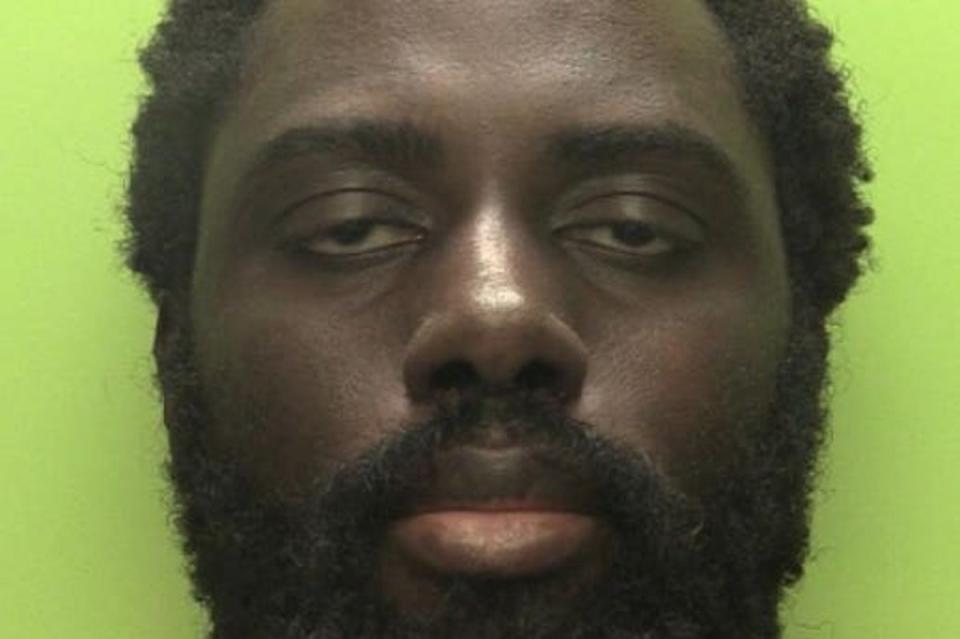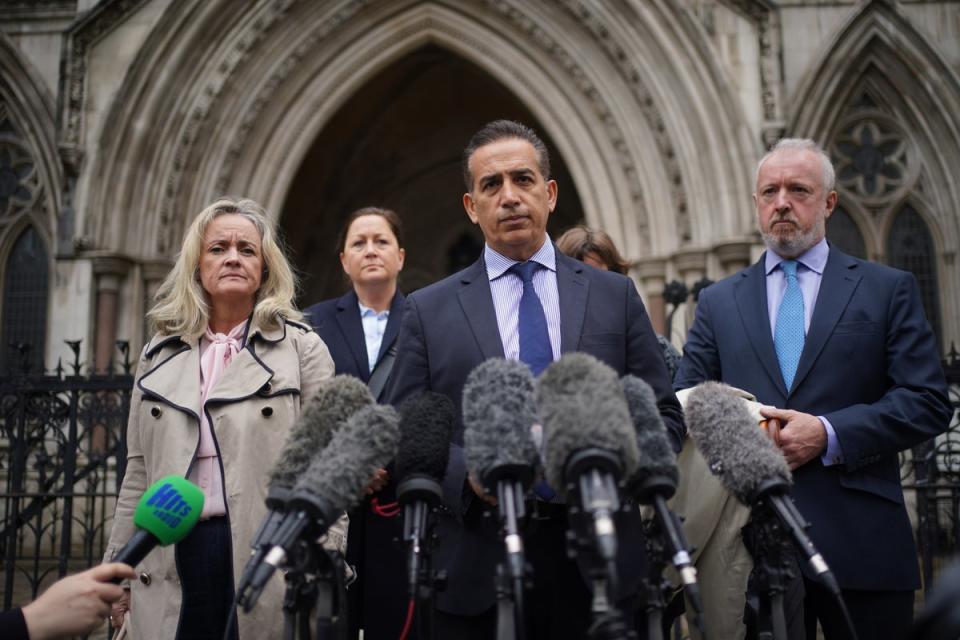Labour blasts ‘cynical’ Tory plan to get tough on domestic killers and bring in US-style murder laws

Domestic killers could face tougher sentences under a manifesto pledge set to be announced by the Tory party, promising a major overhaul of murder laws.
Rishi Sunak is expected to vow to carry out a review to fix sentencing loopholes, including increasing the minimum term for murderers who attack their victims in the home from 15 to 25 years.
Currently, minimum tariffs for killers who take a knife to the scene are 10 years higher than those who kill with a weapon found in the home, meaning domestic abusers who murder their partners face much shorter prison terms.
He will also pledge to bring in US-style three-tier homicide laws – with offences for first and second-degree murder, as well as manslaughter – according to The Times.
Labour has dismissed the plans as a “cynical and transparent” attempt to look tough on crime, accusing Sunak of sitting on his hands as the justice system crumbles. It also took aim at the reported results of the government’s controversial prison early-release scheme.
“Rishi Sunak wants to sound tough on domestic abusers, but he needs to urgently answer how he let the prisons crisis get so bad that he has been forced to release a high-risk domestic abuser that was deemed to be a threat to children,” shadow justice secretary Shabana Mahmood said.
“These are proposals from a man who has sat on his hands, first as chancellor and then as prime minister, while our criminal justice system has crumbled and victims have been failed.”

The Conservative government rejected calls for a US-style system in 2016, with then justice minister Oliver Heald telling MPs it would create a “murder-lite” category for most killings.
A second-degree murder, which would apply in cases where the offender did not intend to kill but intended to do serious injury, was proposed by the Law Commission almost 20 years ago, but has never been adopted.
The Prime Minister is reported to have been swayed after he spoke to the families of Barnaby Webber, Grace O’Malley-Kumar and Ian Coates, who were fatally stabbed in Nottingham last June.
The families were outraged after killer Valdo Calocane was convicted of manslaughter, having denied murder on the grounds of diminished responsibility, after medical experts concluded the paranoid schizophrenic had a psychotic episode.
Calocane was spared jail and handed an indefinite hospital order, with judge Mr Justice Turner telling Calocane he would be held in a high-security hospital “very probably for the rest of your life”.

Under the Tory proposals, Calocane would have been charged with second-degree murder. A review will consider creating a hybrid sentence allowing offenders to be transferred to prison once they are well enough, according to The Times.
Dr Sanjoy Kumar, the father of Grace O’Malley-Kumar, said: “It would be a seismic, important change.”
Campaigners have long called for the government to address the disparity in minimum jail terms for domestic killers, with figures showing two women a week are killed by a current or former partner.
Examples include the murder of 17-year-old Ellie Gould, whose controlling ex-boyfriend Thomas Griffiths, also 17, was jailed for life with a minimum of 12 years and six months after he stabbed her 13 times with a knife from the kitchen at her home in 2019.
Her mother Carole, 53, a founding member of campaign group Killed Women, this week told the Evening Standard: “The whole thing was pre-meditated and yet, because of this crazy law which says you get a lesser sentence for using a knife at the scene of the crime rather than carrying one there, he only has to serve 12 years and six months instead of 25 years before being eligible for parole. For us, it’s a life sentence. It’s horrendous.”

Fellow campaigners include mothers Julie Devey, whose daughter Poppy Devey Waterhouse’s ex-boyfriend was sentenced to a minimum of 16 years after he stabbed her 49 times in a jealous rage, and Elaine Newborough, whose daughter Megan’s killer was sentenced to 23 years after he strangled her and cut her throat at his home.
In an open letter to Rishi Sunak, they urged: “Make the starting tariff of their sentence 25 years and not leave it at the pathetic 15 years that it is currently.”
Their pressure helped prompt the government to commission a review of domestic homicide by Clare Wade KC, which was published last year. Of her 17 recommendations, 11 have been wholly or partially taken up by the government. However, she did not support increasing the minimum term to 25 years, saying this could negatively impact victims of domestic violence who kill their abuser in the home.
A Ministry of Justice public consultation on higher starting sentences for domestic murder cases closed in March this year.

 Yahoo News
Yahoo News 
